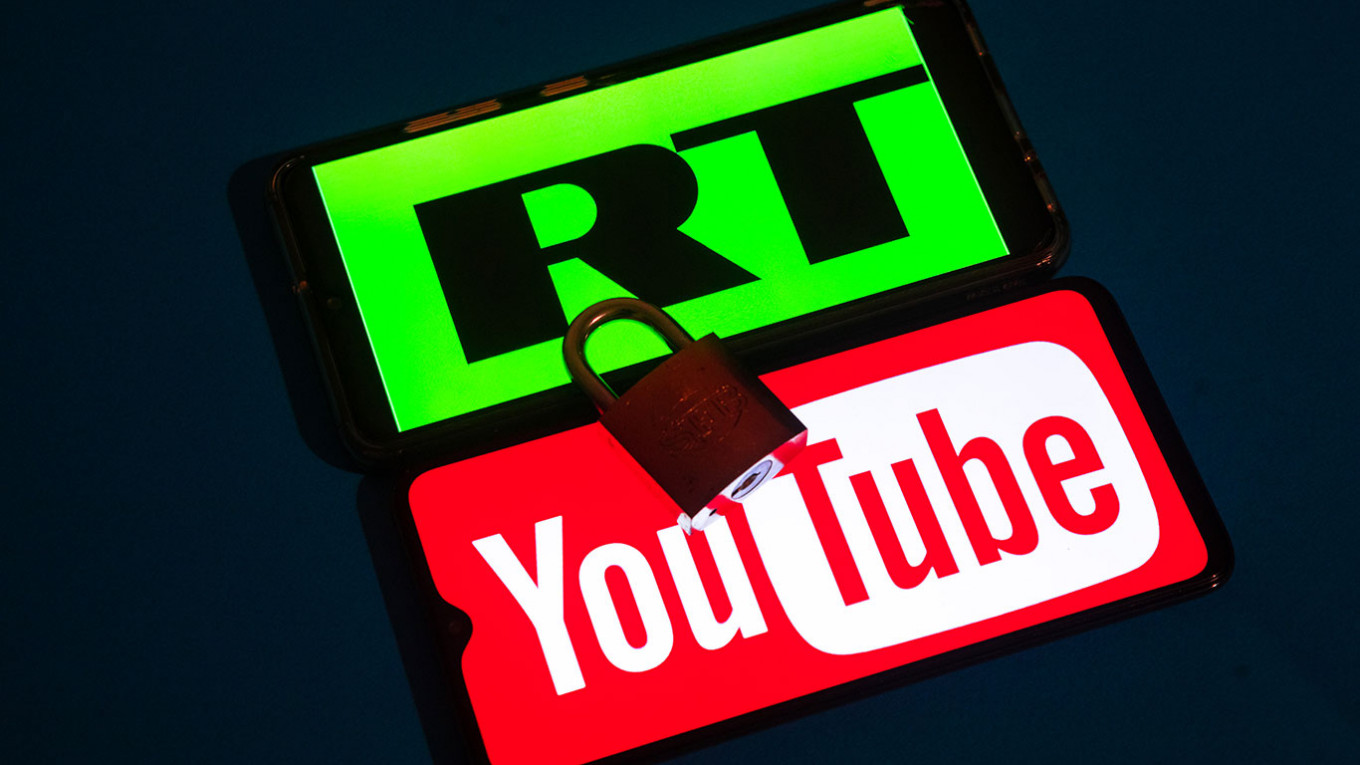YouTube said it was blocking Russia’s state-run RT and Sputnik news outlets in Europe six days after Russian President Vladimir Putin launched an invasion of Ukraine.
“Due to the ongoing war in Ukraine, we’re blocking YouTube channels connected to RT and Sputnik across Europe, effective immediately,” Google Europe said.
“It’ll take time for our systems to fully ramp up. Our teams continue to monitor the situation around the clock to take swift action.”
YouTube’s owner Google issued the statement after other tech giants curbed the reach of Russian state-linked news organizations, which stand accused of pushing misinformation about Russia’s invasion.
Video-sharing app TikTok told AFP it had restricted Russian state-owned media access on its platform in the EU, while Microsoft said it was removing RT from its app store and would change its search engine Bing's algorithm to shift RT and Sputnik content to lower in results.
Facebook's parent Meta said it would be restricting access in the European Union to RT and Sputnik, which Western nations have accused of being Kremlin mouthpieces and serving as a platform to argue for war.
Just hours earlier, Twitter said it would put warnings on tweets sharing links to Russian state-affiliated media.
Later on Tuesday, Instagram said it would block access to all RT accounts within the EU.
The EU had already announced Sunday a ban on RT and Sputnik's broadcasting in member states, with bloc chief Ursula von der Leyen saying they "will no longer be able to spread their lies to justify Putin's war."
The two outlets are Russia's primary media directed at non-Russian speakers, with RT offering a global network of channels, websites and social media accounts publishing content in English, Spanish, French, Arabic and German as well as Russian.
Social media platforms have become one of the fronts in the internationally condemned attack, home to sometimes false narratives but also real-time monitoring of a conflict that has catalyzed Europe's biggest geopolitical crisis in decades.
Netflix, which was facing new requirements to carry Russian state TV stations, said that "given the current situation, we have no plans to add these channels to our service."
Apple did not respond immediately to inquiries about whether they would follow a similar course.
Within Russia, authorities have been blocking independent news outlets for referring to the invasion as “war,” and Russia’s presidential human rights commissioner proposed blocking Facebook during what Moscow insists is a “special military operation.”
AFP contributed reporting.
A Message from The Moscow Times:
Dear readers,
We are facing unprecedented challenges. Russia's Prosecutor General's Office has designated The Moscow Times as an "undesirable" organization, criminalizing our work and putting our staff at risk of prosecution. This follows our earlier unjust labeling as a "foreign agent."
These actions are direct attempts to silence independent journalism in Russia. The authorities claim our work "discredits the decisions of the Russian leadership." We see things differently: we strive to provide accurate, unbiased reporting on Russia.
We, the journalists of The Moscow Times, refuse to be silenced. But to continue our work, we need your help.
Your support, no matter how small, makes a world of difference. If you can, please support us monthly starting from just $2. It's quick to set up, and every contribution makes a significant impact.
By supporting The Moscow Times, you're defending open, independent journalism in the face of repression. Thank you for standing with us.
Remind me later.






